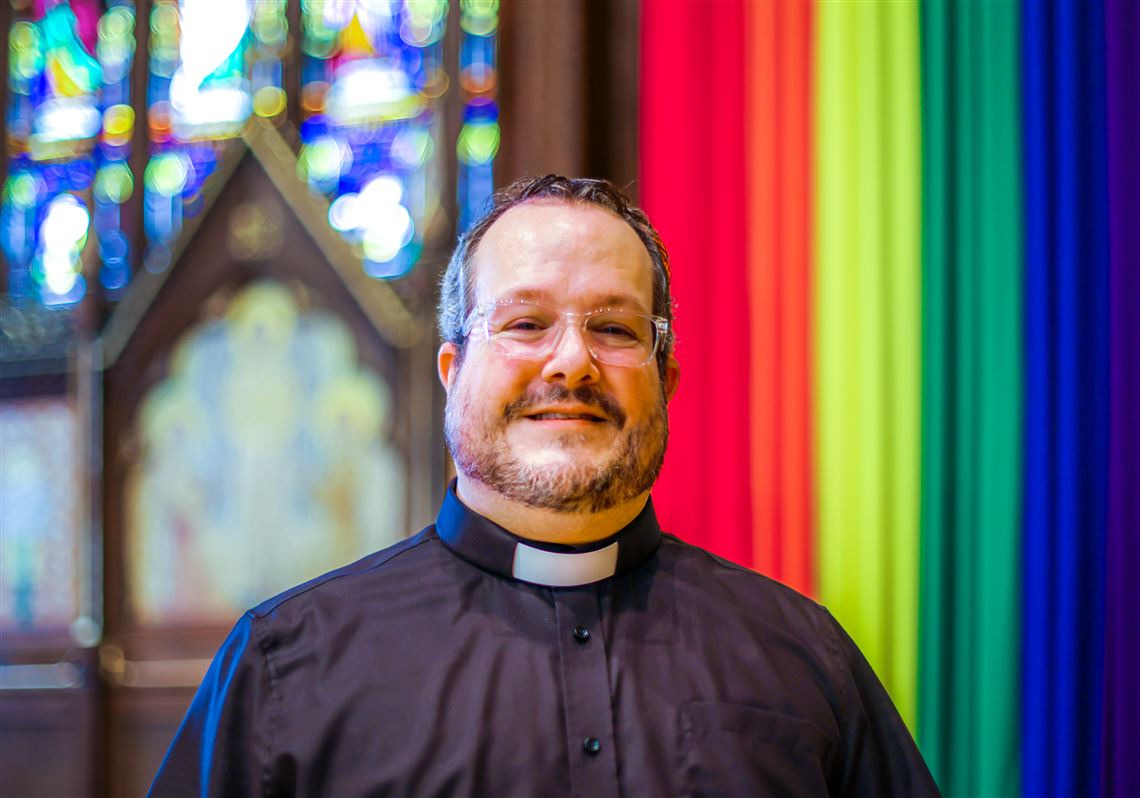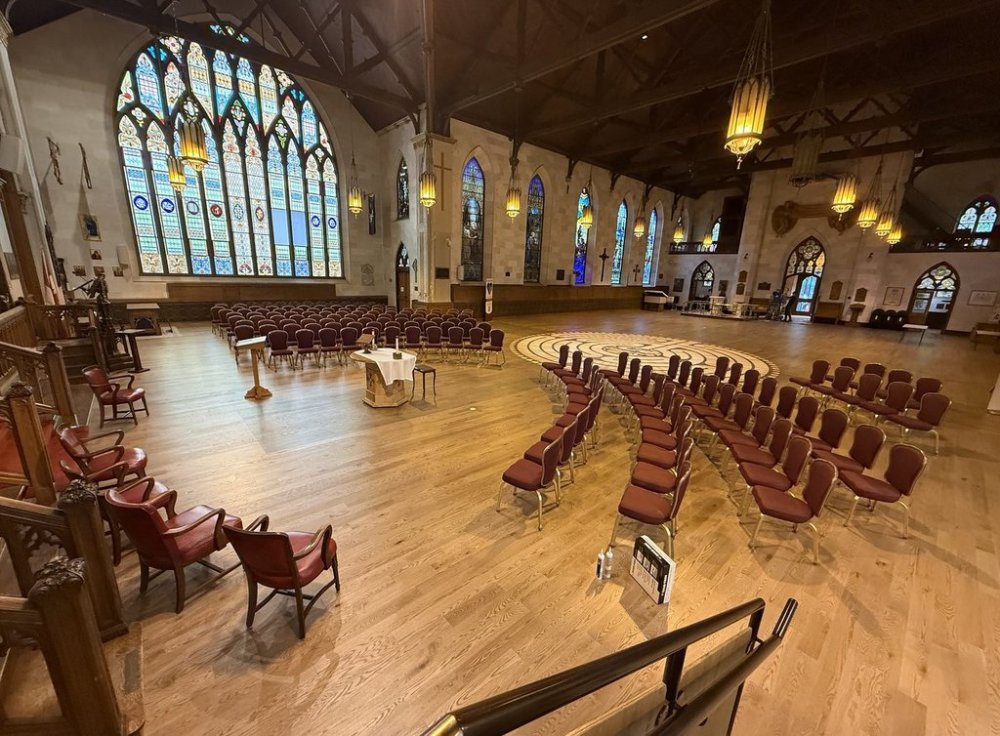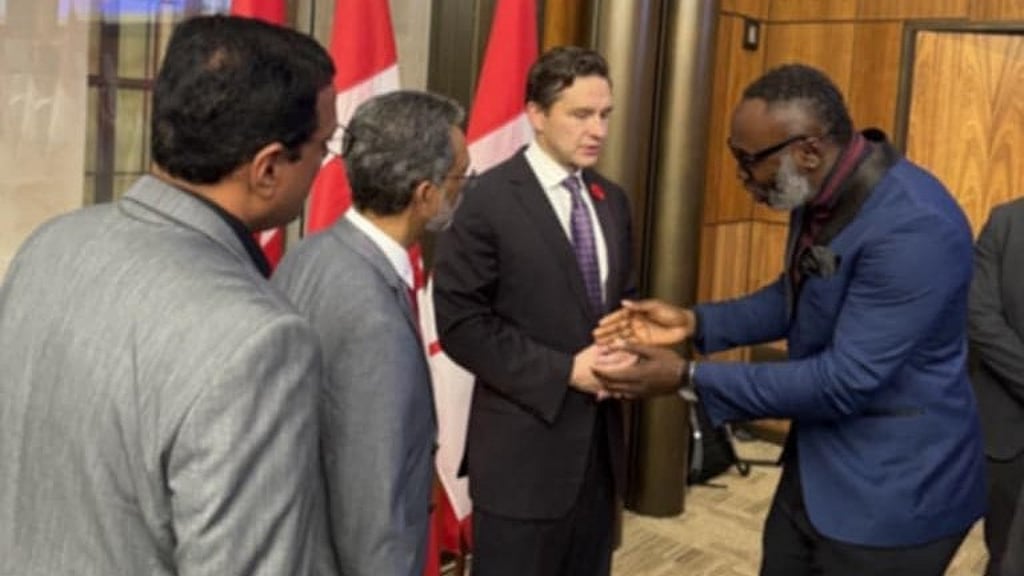Present Generation Too Unconcerned About Bible Study, Pastor DeclaresTo get an idea of how much the Anglican Church of Canada has changed over the last century, see also my posts:
-----------------
Rev. H.D. Martin Deplores Absence of Teaching in Schools
--------------
Following its long established custom of giving its readers each week a sermon from a Winnipeg pulpit, A Tribune reporter, yesterday visited St. George's Church, Crescentwood, and reported the sermon of Rev. H.D. Martin, the pastor.
-----------
Rev. Henry D. Martin, in a sermon [at St. George's] Church, Crescentwood, deplored the fact that the Bible was not taught in the schools. Mr. Martin told his congregation that they had a smaller appreciation of the Bible than its enemies.
Thee was far too little study of the Bible in this generation. If he asked some of them how often they read it he knew what their answer would be. And yet the Bible was the one book they needed at all times, he said.
Outlining briefly the contents of the Bible, he explained that in the Old Testament there was found the literature of an ancient people occupying a distinctive position in their age and in the history of the world. In the New Testament literature they found the story of a movement which centred in a person.
The object of the movement was to promote faith in that person, and through that faith to work a revolution in the world.
Law and Prophecy
In the Old Testament they had the law which comprised religious, moral and social sanctions which had built up the ancient Jewish people. They had also the prophets, which included the history of the captivity and restoration of the Jewish people. The prophetic utterances, said Mr. Martin, were unique, directing the mind of the people and shaping their destiny.
Then there were the writings, in which were included the Psalms, the greatest book of devotion in the world.
In the New Testament, there was a close connection with the Old. There was also a difference. Saint Augustine had expressed it by saying that the New Testament was latent in the Old, and that the Old Testament was patent in the New.
The prophets had forecast the Person of which the New Testament bore witness. He was the Mediator of the new covenant, a unique character, a personality who arrested their attention and won their affection. His words and works, and life was sketched briefly, but His death was described in detail.
Man's Thought Is Changed
His coming brought the possibility of an enlargement of the people of God. It was to be all-inclusive, embracing the whole of mankind. The result of His presence was a decided change in the thought of men. "We realize that faith in this Man, who calls Himself the Son of God and the Son of Man, brings about a regenerative influence in the lives of men who give themeselves to Him, and that this influence spreads to the uttermost parts of the earth," he said.
This faith was a new fact, a new power by which men became sons of God, children of the family of the almighty Father.
The prophetic book with which the Bible closed pictured the time when all the kingdmos of the world would be the kingdoms of God and His Christ, said Mr. Martin.
The study of the Bible would give them the secret of life. It would place in their hands the key of all history. It would provide them with a revelation of God to His children.
Helps Daily Life
"Perhaps the most wonderful thing about the Bible is that it helps us live our common life. Apart from its revelation of God, and its human interest, and practical teaching, it is a curiously 'homey' book. It enters intimately into the ways of life. It always helps us when we go to it for help.
"It has taken the intelligence of the greatest men of the centuries to understand it. Yet the simplest and most unintelligent can take up the Bible and read therein words that bring life to them.
Mr. Martin paid tribute to the character building value of the book, stating that great men testified to the influence on the minds and lives. In the great crises of life there flashed across the memory some words of scripture, he said.
The Bible had been the mother of good literature. It had made English literature. It had provided some nations with the only literature they possessed.
All this was not a mere accident. The Bible was not a collection of myths, stories and legends. It "was the word of God."
"It is a rock that can never be moved. It is a book that enables men to be at one with God; to hold communion and fellowship with God; to enter into the life of God. It teaches them the brotherhood of mankind, and prepares them foer the life that is to come."
Baptists, Anglicans and Pentecostals team up to host Emergent speaker and writer Peter Rollins (February 26, 2009)
Calgary parish votes to leave the Anglican Church of Canada and join the Roman Catholic Church (December 6, 2010)
Anglican Church of Canada mulls open communion (March 9, 2011)
Dissident Anglican congregations lose their properties when the Supreme Court of Canada declines to hear their case (June 18, 2011)
Another dissident congregation leaves the Anglican Church of Canada (July 5, 2011)
Lutheran pastor assumes important Anglican post in Canada (February 5, 2012)
Canadian Anglican priest returns to the pulpit after serving time in prison for indecent assault--and then resigns in the wake of negative publicity (February 3, 2012)
More Canadian Anglicans break away to join the Roman Catholic Church (May 16, 2012)
50 years ago: Anglican Church of Canada adopts new Book of Common Prayer (August 22, 2012)
Aboriginal bishops in Anglican Church of Canada invoke "colonial occupation" in opposition to same-sex marriage (March 10, 2016)
Anglican Church of Canada votes in favour of sodomite and lesbian marriage--after changing the vote count (July 13, 2016)
40 years ago: Anglican Church of Canada ordains its first female priests (November 30, 2016)
90 years ago: Guy Fawkes Day in Toronto (November 5, 2017)
50 years ago: Anglican Church of Canada abandons its opposition to abortion (December 18, 2017)
An Anglican Church of Canada priest who's an example of a pagan disguised as a Christian (February 28, 2018)
50 years ago: Canadian Anglican traditionalists oppose union with United Church of Canada (June 21, 2019)
Statement from Anglican Church of Canada Primate-elect shows the church to be beyond the possibility of satire (July 27, 2019)
Anglican Church of Canada General Synod votes overwhelmingly to remove prayer for the conversion of the Jews from the Book of Common Prayer (August 7, 2019)
Anglican Church of Canada will review its governance structure in order to remove those who stand in the way of the alphabet pervert agenda (August 22, 2019)
Anglican Church of Canada General Synod votes to endorse Chrislamic A Common Word Between Us and You (December 22, 2019)
Anglican Church of Canada will be dead by 2040, according to its own report (December 22, 2019)
100 years ago--Canadian Anglicans envision new social order (September 30, 2023)
An Anglican "church" in Winnipeg hosts an alphabet pervert "reimagination" of Handel's Messiah (December 22, 2023)
50 years ago--the Anglican Church of Canada votes to ordain women to the priesthood (June 18, 2025)
The Anglican Church of Canada is repurposing its buildings because it can no longer fill them (June 22, 2025)








































